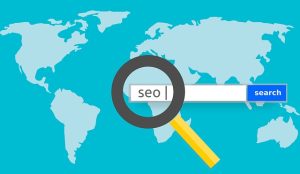Off-Page SEO is a strategic approach aimed at improving a website's standing in search engine results by focusing on external factors. Its key objectives are to boost domain authority, attract high-quality backlinks, and enhance brand recognition. This involves leveraging user behavior insights, social media engagement, and cultivating a robust online presence. Effective tactics include securing links from reputable sources, engaging on social media, and managing directory listings. Off-Page SEO also leverages brand mentions and user-generated content to build credibility and authority, which significantly influences search engine rankings. Regular monitoring using analytics tools is crucial for understanding and optimizing the website's visibility and reputation in the digital space.
Off-Page SEO optimization is a strategic approach to elevate your website’s rankings by leveraging external factors. This article explores the multifaceted world of Off-Page SEO, breaking down essential components such as understanding its definition and key objectives, and identifying influential external signals.
We’ll navigate through crucial strategies like link building, social media utilization, brand mentions, directory listings, and performance monitoring, offering insights to enhance your online visibility and search engine rankings.
Understanding Off-Page SEO: Definition and Key Objectives

Off-Page SEO refers to a set of strategies and activities that focus on improving a website’s search engine rankings by leveraging elements outside of its control. It involves building a strong online presence and reputation, which search engines like Google use as signals to determine a site’s authority and relevance. Key objectives include increasing domain authority, attracting high-quality backlinks, enhancing brand visibility, and establishing the website as a trusted resource within its industry.
By understanding user behavior and searching patterns, Off-Page SEO aims to ensure that relevant content reaches the right audience. This involves earning links from reputable sources, such as other websites, blogs, and online publications. Additionally, it includes social media engagement, where sharing and discussing content can drive traffic and influence search engine algorithms. Ultimately, successful Off-Page SEO contributes to better search engine rankings, increased organic visibility, and a stronger online brand identity.
Factors Influencing Off-Page SEO: External Signals Matter

Off-Page SEO is a complex process influenced by various external factors, or signals, that go beyond the control of website owners. These signals play a significant role in determining a website’s search engine rankings. Social media engagement, for instance, is a powerful indicator; when your content garners more likes, shares, and comments, it sends positive signals to search engines, enhancing its visibility. Similarly, backlinks from reputable and relevant websites carry immense weight; these links act as votes of confidence in the eyes of search algorithms.
Another critical external signal is brand mentions without direct links. When your brand is discussed or mentioned on other sites, it creates a buzz and increases your online presence. Search engines interpret this as an endorsement, indirectly boosting your SEO. Additionally, local business citations and reviews are crucial for local SEO, as they help search engines verify the authenticity and reliability of your business in specific geographic locations.
Link Building: The Cornerstone of Off-Page Strategy

Link building is a fundamental component and cornerstone of any successful Off-Page SEO strategy. It involves acquiring backlinks from reputable and relevant websites, which act as votes of confidence in the eyes of search engines. High-quality backlinks signal to search algorithms that your website provides valuable content, leading to improved search engine rankings. This process requires a strategic approach, including identifying potential link partners, creating engaging content that naturally attracts links, and utilizing various outreach techniques to build meaningful relationships.
A robust Off-Page SEO strategy should aim to establish your brand’s authority and visibility by acquiring backlinks from diverse sources. This can be achieved through guest blogging on influential websites, securing mentions in industry publications, or collaborating with influencers. By consistently creating shareable and linkable assets, you encourage other sites to naturally include your content in their own, thereby enhancing your website’s overall online presence and search engine optimization.
Utilizing Social Media for Enhanced Visibility

In the dynamic landscape of Off-Page SEO, social media platforms play a pivotal role in enhancing online visibility and driving organic traffic. By actively engaging on channels like Facebook, Instagram, and Twitter, businesses can create a buzz around their brand, fostering a community that extends beyond their website. This strategic approach leverages the power of user-generated content, where satisfied customers share their experiences, thereby increasing brand credibility and reach.
Social media also facilitates valuable backlink acquisition, a critical aspect of Off-Page SEO. When high-quality content is shared and discussed on these platforms, it naturally attracts links from other websites, signaling to search engines that the brand is authoritative and trustworthy. This, in turn, improves search rankings and expands digital footprint, solidifying the brand’s position in its industry.
Impact of Brand Mentions and User-Generated Content

Brand mentions and user-generated content (UGC) are powerful assets in an Off-Page SEO strategy. Every time a brand is mentioned online, it’s like a vote of confidence from one website to another. These mentions, especially when they include links, signal to search engines that your brand is credible and worth referencing. User-generated content, on the other hand, adds authenticity and variety to your digital footprint. When customers share their positive experiences with your products or services, it creates a web of trust and engagement that can significantly boost your SEO rankings.
Both elements contribute to building a robust backlink profile—a key factor in Off-Page SEO. The quality and quantity of these backlinks determine how high your website will rank in search engine results pages (SERPs). Mentions and UGC encourage other websites to link back to you organically, which can lead to improved domain authority and visibility for your brand.
Directory Listings and Local SEO Optimization

Directory listings play a vital role in Off-Page SEO, especially for local businesses aiming to enhance their online visibility. These directories, often featuring on search engine result pages, provide a platform to showcase essential business details like contact information, working hours, and services offered. By ensuring consistent and accurate data across these listings, businesses can improve their search rankings and attract local customers.
Local SEO optimization involves strategic placement of the business name, address, and phone number (NAP) on relevant directory sites. This practice helps search engines understand the physical location and availability of the business, leading to better localization in search results. With a well-optimized profile on popular directories like Google My Business, Yelp, and industry-specific platforms, businesses can capture local customer attention and foster a stronger online presence, ultimately driving more traffic and potential conversions.
Monitoring and Analyzing Off-Page Performance

Monitoring off-page SEO performance is a critical step in understanding your website’s visibility and authority within the digital landscape. It involves tracking backlinks, social media mentions, and brand citations to gauge the effectiveness of your external link-building strategies. By utilizing advanced analytics tools, you can identify high-quality, relevant backlinks that signal strength to search engines. These insights enable you to assess the success of your off-page optimization efforts and make data-driven adjustments.
Analyzing this performance allows for a deeper understanding of user behavior and engagement. It helps uncover trends in referral traffic, social media interactions, and brand sentiment. Regularly monitoring these metrics enables proactive management of your online reputation, ensuring that your website remains competitive in the ever-evolving digital realm.
